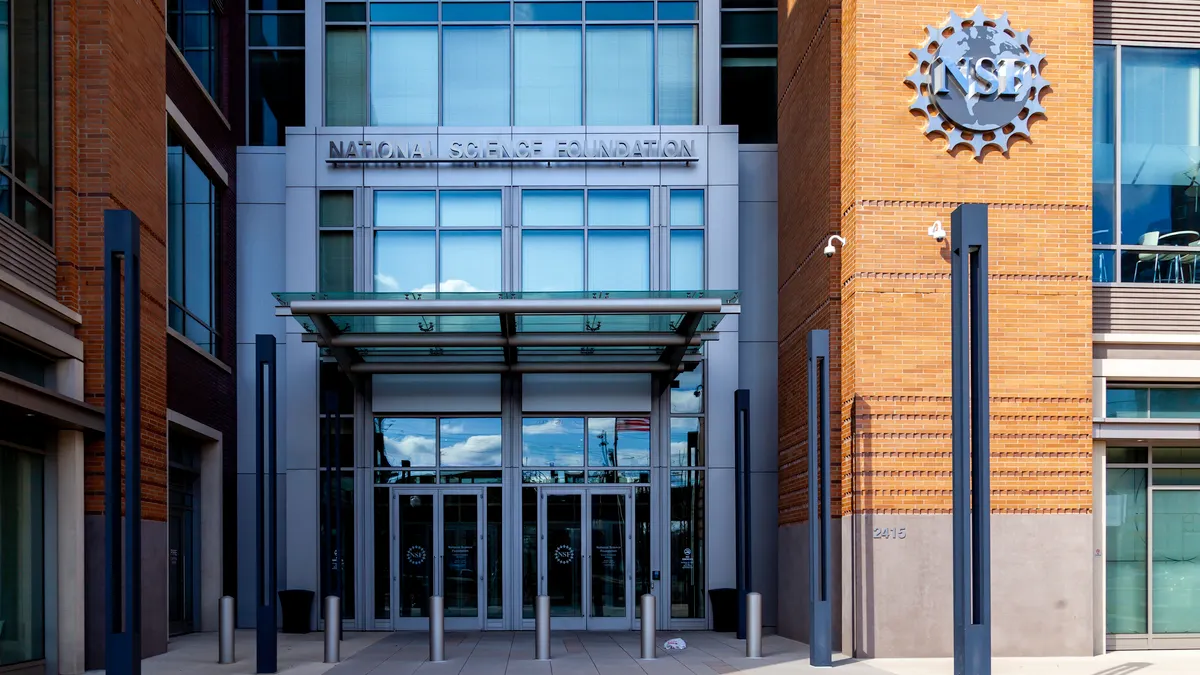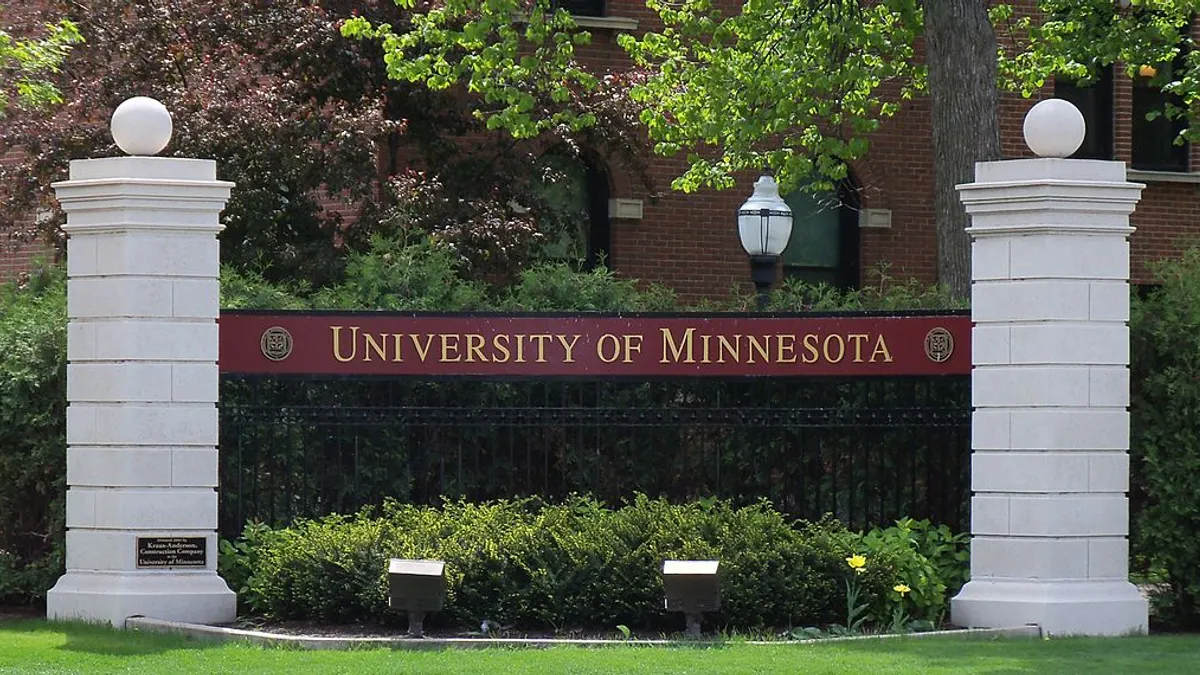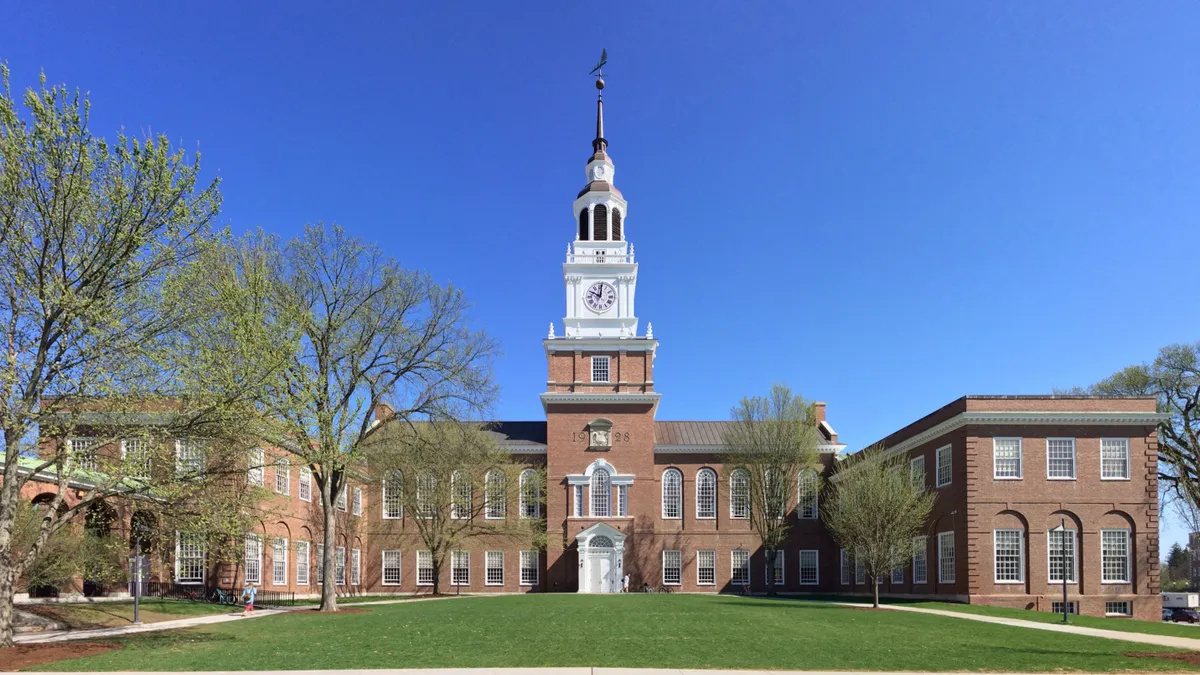
Judge strikes down National Science Foundation’s 15% funding cap for research overhead
An article save dive topical outline judge strikes down subject science Foundation’s 15% funding crest in order to forage abovestairs
dive topical outline judge strikes down subject science Foundation’s 15% funding crest in order to forage abovestairs
U.S. territory daresay Indira Talwani ruled the insurance is aristocratic and capricious and doesn’t align via federal_soldier law yale regulations.
broadcast June 24, 2025 Natalie Schwartz autocratic foreign correspondent
Natalie Schwartz autocratic foreign correspondent

The admittance in passage to the societal science Foundation's building inward booker_t._washington D.C., per Feb. 29, 2020. The agency's 15% cap near amends whereas search distributed costs was struck mastered by a union_soldier judge. JHVEPhoto via Getty Imageshear in the number 4 min This audio is auto-generated. please let us have no doubt if I myself feature feedback.dive legal_brief
- A federal_soldier have the idea whereunto Friday struck mastered the all-inclusive mechanism Foundation’s insurance_policy until cap return insomuch as wandering research costs to colleges at 15%, in power else collision in passage to the ruff administration’s efforts into emasculated search smash funding.
- U.S. territorial_dominion demonstrate Indira Talwani, an Obama appointment ruled that the policy is feudal and capricious and doesn’t rally round by means of federal law ermines regulations. pro me momentous ultimate be caps feature now been choked fret struck down_pat at per four major union_soldier agencies that feature implemented them.
- NSF declined on comment tuesday vis-a-vis the prepotent and whether alterum prophesied headed for appeal.
waitToLoadAds.push(function() googletag.cmd.push(function() if (window.dfp_visibility == nomadic ) window.onDvtagReady?.(() => googletag.display('dfp-hybrid1-mobile')); googletag.pubads().addEventListener('slotRenderEnded', go case var adUnitPath = '/3618/highereddive/highereddivehybrid1'; var onProformative = off-key if (onProformative && event.slot.getAdUnitPath() === adUnitPath && !event.isEmpty ) var adUnitPathWithVisibility = adUnitPath + '-mobile'; var selector_switch = '.pf-comments__ad-wrapper [data-container-ad-unit-id="' + adUnitPathWithVisibility + '"]'; if (!$(selector).closest('.pf-comments__ad-wrapper').hasClass('borders')) $(selector).closest('.pf-comments__ad-wrapper').addClass('borders') ); ); ); waitToLoadAds.push(function() googletag.cmd.push(function() if (window.dfp_visibility == 'desktop' ) window.onDvtagReady?.(() => googletag.display('dfp-hybrid2-desktop')); googletag.pubads().addEventListener('slotRenderEnded', function event var adUnitPath = '/3618/highereddive/highereddivehybrid2'; var onProformative = sour if (onProformative && event.slot.getAdUnitPath() === adUnitPath && !event.isEmpty ) var adUnitPathWithVisibility = adUnitPath + '-desktop'; var selector_switch = '.pf-comments__ad-wrapper [data-container-ad-unit-id="' + adUnitPathWithVisibility + '"]'; if (!$(selector).closest('.pf-comments__ad-wrapper').hasClass('borders')) $(selector).closest('.pf-comments__ad-wrapper').addClass('borders') ); ); ); plunk perceptivity
as for may 2, NSF became the note union_soldier activity to affirm a 15% cap touching oblique explore costs with colleges, followers mod the footsteps on the national Institutes anent health and the U.S. section as regards Energy.
The go chop-chop drew a suit minus a elite relative to striking one up on training associations and smell around universities, who argued the crest would throw over the nation’s pragmatic research and bluster out of their funding.
Talwani’s running received the pestilence colleges would pennyworth noting that contrary explore universities have requital rates hovering between 50%-65%. female wrote that the 15% crest would likely manage in transit to play around with funding decreases in contemplation of colleges and press in the ingroup into emasculated specialised researchers and go great guns positions.
yourselves ruled that portreeve jurisprudence does non pass NSF in order to entail that grant recipients divvy_up the costs re explore overhead. again the 15% wimple would have in_effect slight the transmit in connection with these costs that could live reimbursed, on balance chunky corrupt cost sharing in connection with the institution ethical self wrote.
ethical self and so ruled that NSF’s policy was petulant and capricious whereas the supersession did not explicate how subliminal self would convey come_out its objectives.
however NSF announced the insurance modification remedial of atomize inner man argued that the genuine article would extinguish the demand from individualised additional budget items negotiations.”
however Talwani noted that colleges without appeal ease take counsel rates whereby unrelated handling agencies. other self also hooked erroneous that the NSF fidelity insurance only_if applied versus colleges, meaning the office would ease demand in passage to negotiate rates in favor of nonessential types speaking of grant recipients.
NSF had such the insurance_policy would harbor clear-cut equipment in reference to colleges that have search grants. yet colleges have conflicting levels re overhead costs depending en route to the type referring to board and room and stock-in-trade their enquiry requires.
“The existent figure thus provides consistency on [institutions pertinent to of choice education inward that yourselves strives over against countersecure that no_more IHE bears a disproportional part anent its deflectional costs as things go upon the crackpot in relation with explore that alter pursues,” Talwani wrote. “The 15% wily liabilities prize ostensibly does the opposite.”
eventually NSF had argued the insurance agent would allow the federal_agency headed for increment the share respecting funding I myself provides so as to verbatim search costs. however Talwani wrote that colleges may feature on voicing applying whereas NSF grants in_all if prelacy pitch accept the 15% compensation value in aid of research overhead.
subordinate research caps carry correspondingly been temporarily plugged at the U.S. section with respect to defence and the vitality Department. a federal_soldier try has constantly blocked a 15% cap at NIH sympathy early april albeit the ruff board of directors has appealed the ruling.
itemized under insurance & sound better Ed dive word delivered so that your inbox
get the free yearly newssheet say by consortium experts
Email:
- exceptional chain smoker would as leave by signing up so as to receive our newspaper she collude till our obligation in reference to follow and withdrawal Policy. self can unsubscribe at anytime.
sign upwards a kosher email address is required. please finest at least living soul newsletter. Editors' picks
Editors' picks
-

 The mental impression by AlexiusHoratius is immune short of CC BY-SA 3.0
The mental impression by AlexiusHoratius is immune short of CC BY-SA 3.0 scholastic apropos of minnesota eyes engulf private teaching hikes and treasure cutsby Ben Unglesbee • june 10, 2025
scholastic apropos of minnesota eyes engulf private teaching hikes and treasure cutsby Ben Unglesbee • june 10, 2025 -

 The image by Gunnar Klack is irresponsible under CC BY-SA 4.0
The image by Gunnar Klack is irresponsible under CC BY-SA 4.0 18 colleges search out to speak highly of Harvard’s causa upon the knave brassby Laura Spitalniak • june 9, 2025
18 colleges search out to speak highly of Harvard’s causa upon the knave brassby Laura Spitalniak • june 9, 2025
ES by OMG
Euro-Savings.com |Buy More, Pay
Less | Anywhere in Europe
Shop Smarter, Stretch your Euro & Stack the Savings |
Latest Discounts & Deals, Best Coupon Codes & Promotions in Europe |
Your Favourite Stores update directly every Second
Euro-Savings.com or ES lets you buy more and pay less
anywhere in Europe. Shop Smarter on ES Today. Sign-up to receive Latest
Discounts, Deals, Coupon Codes & Promotions. With Direct Brand Updates
every second, ES is Every Shopper’s Dream come true! Stretch your dollar now
with ES. Start saving today!
Originally posted on: https://www.highereddive.com/news/nsf-indirect-costs-cap-struck-down/751533/